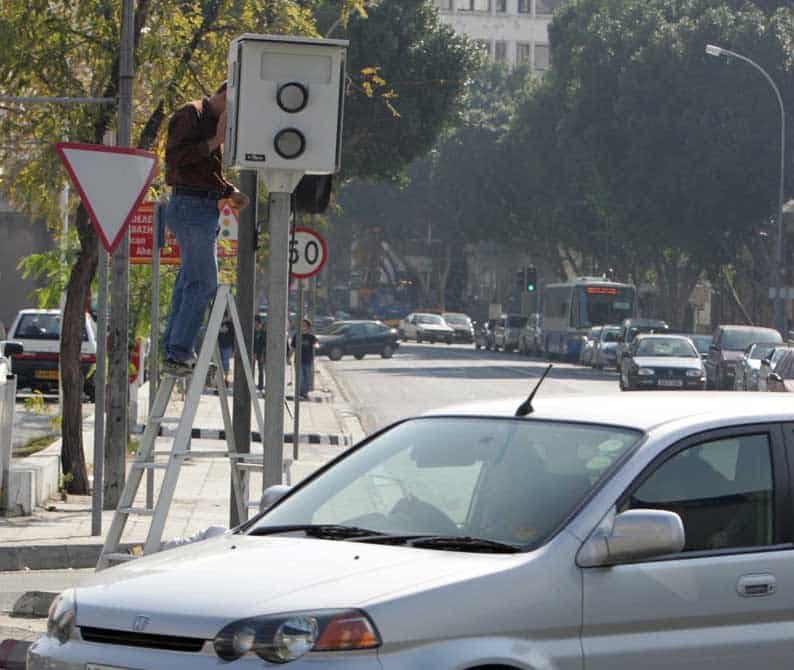The majority of Cypriots believe that traffic cameras will save lives on the road, and support the installation of more such units, a survey has found.
Carried out by IMR and the University of Nicosia, and commissioned by the police, the poll found that 70 per cent think that the cameras will help prevent and reduce deadly accidents. That view was held by 96 per cent of the sub-category of respondents aged 65 and over.
Regarding the penalties for traffic violations, 18 per cent of respondents wanted stiffer fines, 22 per cent less severe fines, and 50 per cent thought the current fines should stay as is.
Asked whether more cameras should be installed, 70 per cent said yes. Broken down by district, 74 per cent of respondents from Nicosia were in favour, followed respondents from Limassol with 71 per cent.
Only last month, the government said that the company operating the traffic cameras system would receive a warning in the wake of a series of failures that are holding up the full implementation of the system, Transport Minister Yiannis Karousos said.
Those caught violating the traffic code may also receive a text message or email informing them of the fine, the minister added, explaining that they are looking into tweaking the relevant legislation.
The president had to chair a meeting on the embattled traffic camera system to try and untangle the growing knot as the programme remains mired in its pilot phase.
The pilot phase began in October 2021 with just four stationary cameras active, a period which was initially only set to last for three months. But since then, local media reported that over half of the almost 90,000 violations which have been recorded have not had their subsequent fines sent out.
But Karousos hit back at those figures, stating that confirmed violations currently total 62,752 of which 47,192 have either been sent out or were about to be. However, that still left a considerable chunk of 15,000 fines to be handled.
Issues plaguing the camera system are varied, but a major hurdle was that the company was having difficulties issuing fines due a driver’s details appearing in different forms and not matching across the government databases.







Click here to change your cookie preferences